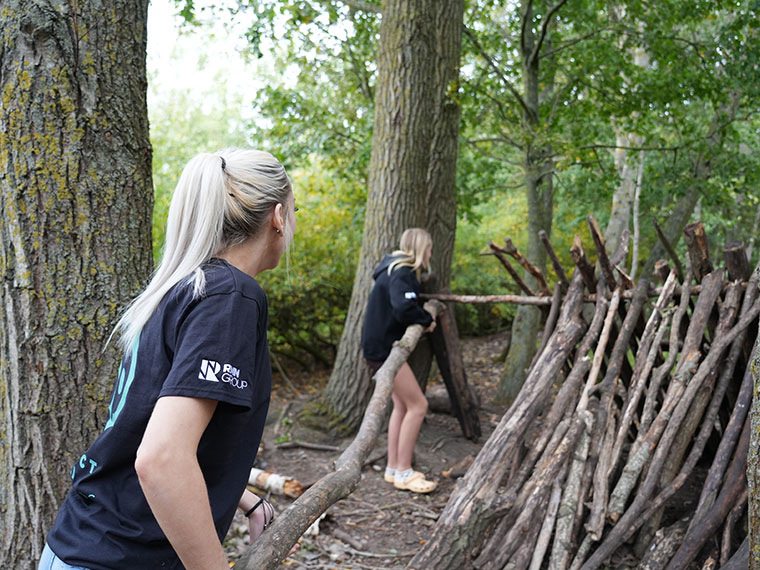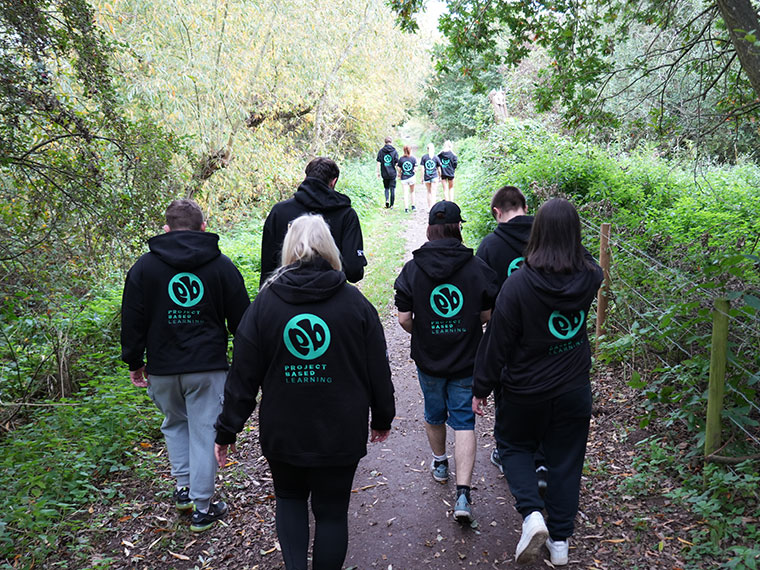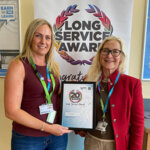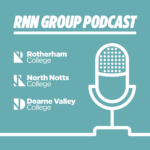Project based programme supports SEMH learners to build confidence and skills for future success
Starting college is a big change. It’s a new environment with new peers, new staff, and greater expectations of independence and self-management.
For young people who have Social, Emotional and Mental Health (SEMH) needs, the move to college can be challenging – not because of lack of ability, but because that transition is overwhelming.
Such a big change can increase anxiety, reduce their sense of safety, or overpower their coping strategies.
That’s why we’ve launched a 12-week project based programme across our college group to help students with SEMH needs build confidence, emotional resilience, and essential employability skills.

What is the project based programme and who is it for?
Project based learning provides SEMH learners with a safe, purposeful, and empowering way to learn by doing.
It recognises the whole person – not just their academic ability – and gives them opportunities to develop emotional resilience, communication skills, and confidence in their own potential.
It’s particularly beneficial for learners aged 16 to 19 who are at risk of or currently not in education, employment or training (NEET), have been previously home educated, or need structured support to access further education, employment or training.
The programme runs for 12 weeks across our three campuses: Rotherham College, North Notts College and Dearne Valley College.
Over the 12 weeks, students will take part in hands-on projects designed around real-world themes such as community, creativity, and the world of work.
There are lots of outdoor activities with everything from den building for developing teamwork and problem-solving skills, to wellness walks for students to share how they’re feeling.
Students work in small, supportive groups with dedicated staff who understand SEMH needs and the importance of personalised learning.
Trauma-informed tutors and support staff will guide students through each stage of the process, helping them develop a three-year plan, reflect on progress, and celebrate their achievements along the way.
This programme is about more than just learning skills. It’s about helping our young people believe in themselves, take pride in what they can do, and feel ready for their next steps.
A day in the life of a project based learning student
Why project-based learning matters for students with SEMH needs
For some learners with SEMH needs, traditional classroom learning can feel overwhelming or disconnected from real life.
Factors such as anxiety, low confidence, or previous negative experiences in education can make it difficult to engage, focus, or see the purpose behind lessons. Missing lessons on a full-time vocational course can cause them to fall behind, become anxious about returning, or have poor relationships with staff.
Project-based learning offers an alternative approach that helps these learners reconnect with education in meaningful and empowering ways at a pace that suits them.
Instead of learning through textbooks or abstract tasks, students work on real-world projects that have a clear purpose and visible results. This gives learning context and relevance, helping students understand why they’re learning and how their skills can make a difference.
How our project-based programme supports SEMH learners
1. Builds confidence through success
It allows students to experience success step by step – from planning and creating their three-year plan to presenting and reflecting. Each achievement, no matter how small, reinforces a sense of competence and self-belief.
2. Encourages teamwork and communication
Working on shared projects helps learners build trust, develop empathy, and practise social skills in a supportive environment. They learn how to listen, contribute, and celebrate others’ ideas – vital skills for both life and work.
3. Supports emotional regulation
Hands-on tasks and active learning help reduce stress and anxiety. The structure of project work, with clear goals, timelines, and roles, creates predictability and safety, which is especially important for students with SEMH needs.
4. Promotes ownership and motivation
When learners have a say in their projects and see tangible outcomes, their motivation grows. They begin to view themselves as capable problem-solvers rather than passive students.
5. Connects learning to the future
By linking projects to real-life themes, like work, community, and independence, students can see how their learning prepares them for adulthood. This directly supports the Preparing for Adulthood framework and helps with transitions into college, training, or employment.

Looking ahead
Throughout the project-based programme, learners will develop their own three-year learning plan which will highlight their goals for their time at college and afterwards. This could include the type of course they want to enrol onto or what career they have in mind.
The programme is embedded with careers advice and guidance so that learners can better understand what qualifications they need to progress onto their chosen career pathway.
At the end of the 12-week programme, students should be ready to smoothly transition into a vocational course, an apprenticeship, or a supported internship within our FLEX department.
All three of our college campuses have their own FLEX departments which offer a flexible way of learning for students who have SEMH or SEND needs.
There are relaxation areas, arts and crafts spaces, and open classrooms for more structured learning. At our Rotherham campus, the FLEX department also has a bedsit area with kitchenette, plus a kitchen and cooking area where students can develop those life skills needed as they move into adulthood and independent living.











